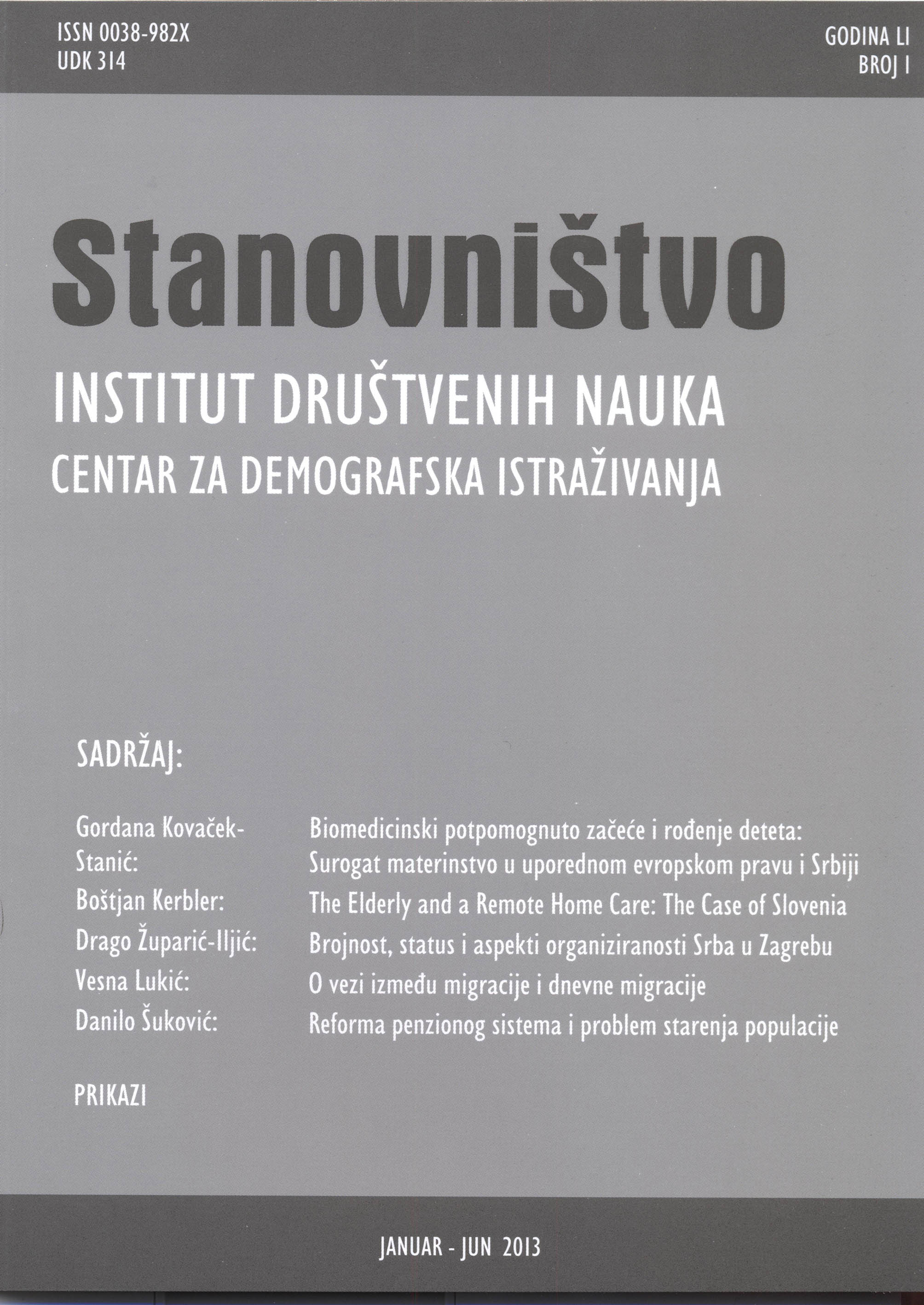Biomedicinski potpomognuto začeće i rođenje deteta: surogat materinstvo u uporednom evropskom pravu i Srbiji
Biomedically assisted reproduction and child birth: surrogate motherhood in comparative European law and Serbia
Author(s): Gordana Kovaček-StanićSubject(s): Social Sciences, Law, Constitution, Jurisprudence, Sociology, Health and medicine and law, Demography and human biology, EU-Legislation
Published by: Институт друштвених наука
Keywords: surrogate motherhood; comparative European law; Serbian law; full; partial; genetic; friendly surrogation
Summary/Abstract: Surrogate motherhood is an arrangement in which a woman agrees to carry and deliver a child for another couple who ordered the pregnancy. This procedure is applied today in Great Britain, Holland (although without legal regulations), Israel, Greece, Ukraine, Armenia, Georgia, the USA and Australia, and it is forbidden in France, Austria, Spain, Germany, Switzerland and Slovenia. There are two types of surrogacy, one when the woman gives birth to a child who is genetically her own ("partial", genetic surrogacy), and the other where the surrogate mother only carries and gives birth to a child, whereby the child is genetically from the couple that wanted the child, or the fertilized egg is from a third woman (donor), or the embryo was donated ("full", "total", gestational surrogacy). In these cases two women take part in conception and birth of the child while in the last case there is a third woman who will raise the child. Biologically observed, the woman whose egg has been fertilized may be called the genetic mother, while the woman who carried the pregnancy and gave birth to the child – the gestational carrier. Taking into consideration that the Preliminary Draft of the Serbian Civil Law anticipates the introduction of surrogate motherhood into domestic law, we believe restrictive solutions should first be taken into consideration. This would mean that only full surrogating should be allowed, namely the egg should be from the woman who wants the child and not the surrogate mother. In domestic conditions, genetic surrogation should not be allowed as it leads to confusion in family relations, and kinships still have an important social and legal significance in our country. The surrogate mother should be a woman who has already given birth, because in that way any possible shocks which might arise after birth when the woman who has to handover the child to the intended couple would be avoided. The next condition would be that persons involved in this procedure should have usual residency in Serbia so as to prevent any international complications or problems. As far as compensation is concerned, only compensation of so-called reasonable expenses which the surrogate mother would incur should be allowed. The surrogate contract should be approved by a court judge, who would have the obligation to determine if all legal conditions have been fulfilled for surrogate motherhood, and to explain the contract effects to the contracting parties. Apart from that, psycho-social counseling of all persons involved in the procedure should be anticipated.
Journal: Stanovništvo
- Issue Year: 51/2013
- Issue No: 1
- Page Range: 1-21
- Page Count: 21
- Language: Serbian

